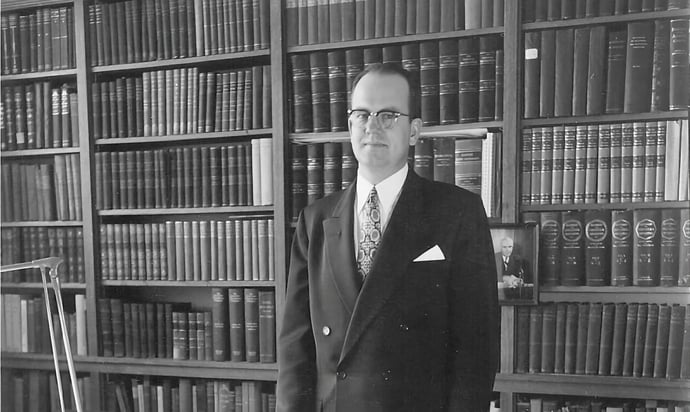Only briefly distracted by another Christmas rant, Craig and Troy return to the book of Timothy to examine the qualifications of a deacon of the church
Podcasts
Each 1517 Podcast is dedicated to delivering Christ-centered content through weekly, monthly, and seasonal audio platforms. Listen online or on your favorite podcasting app.
Author
- All Authors
- Aaron Zimmerman
- Adam Francisco
- Amy Mantravadi
- Blake Flattley
- Bob Hiller
- Bradley Gray
- Brian W. Thomas
- Bror Erickson
- Bruce Hillman
- Caleb Keith
- Chad Bird
- Chris Rosebrough
- Christopher Gillespie
- Cindy Koch
- Craig Donofrio
- Dan van Voorhis
- Daniel Deen
- Daniel Emery Price
- Darrin Sheek
- David Andersen
- David Rufner
- David Zahl
- Debi Winrich
- Delwyn Campbell
- Donavon Riley
- Doug Klembara
- Edward Killian
- Elyse Fitzpatrick
- Erick Sorensen
- Flame
- Grant Klembara
- Gretchen Ronnevik
- Haroldo Camacho
- Jacob Smith
- Jared C. Wilson
- Jeff Mallinson
- Jeffrey Pulse
- Jessica Thompson
- Jim Nestingen
- Joel Fitzpatrick
- Joel Hess
- John Andrew Schreiner
- John Bombaro
- John T. Pless
- John W. Hoyum
- John Warwick Montgomery
- Katie Koplin
- Kelsi Klembara
- Ken Sundet Jones
- Magnus Persson
- Matt Popovits
- Michael Berg
- Michael Horton
- Nick Lannon
- Paul Koch
- Peter Nafzger
- Philip Bartelt
- Raleigh Sadler
- RJ Grunewald
- Robert Kolb
- Rod Rosenbladt
- Ron Hodel
- Sam Leanza Ortiz
- Sarah Condon
- Sarah Crowder
- Scott Davis
- Scott Keith
- Steven Paulson
- Tanner Olson
- Troy Neujahr
- Uwe Siemon-Netto
- Wade Johnston
- William Cwirla
-
Let’s Not Talk About Love. In this episode, we discuss R.C. Sproul’s Christmas sermon wherein he preaches on the Gospel of Luke chapter 2. The espresso kicked in early, and we read through the whole sermon before diving deep into the distinction between exposition and proclamation, so buckle up. Riley talks too much while Gillespie exercises patience and restraint.
-
In 1 Timothy 2, Paul sets out to describe how the church service is conducted and structured. What is governing principle for both?
-
They Call Me… Tim. In this episode, we discuss Tim Keller’s sermon, The Purpose of Christmas. Does it matter that Jesus’ birth is a historical fact? What’s the difference between an eyewitness account and a legend? What are we really preaching at Christmas, and why should anyone care?
-
God Doesn’t Do Prophet-sharing. In this episode, we discuss Gerhard von Rad’s explanation of a prophet’s freedom and lack of choice regarding his call and proclamation. What’s at stake for preachers, and all Christians, when God calls us to speak a specific word, to a specific people, at a specific time according to his decision?
-
Weekend Edition for November 5-6, 2022
-
We Are Live! In this episode, we recorded a live show at the Here We Still Stand 2022 conference, so of course, we read Nietzsche and discussed salvation.
-
Do You Read The Bible? What’s Your Secret? In this episode, we discuss how to understand the Bible from Matthias Flacius’ book, How to Understand the Sacred Scriptures.
-
It’s A Bittersweet, Scientific Symphony of Atheism. In this episode, we discuss Josh McDowell’s book, More Than A Carpenter, and the topic of belief, science, and atheism. Do science and faith contradict one another? Is atheism a reasonable position over-against belief in God?
-
Liar, Liar, Jesus Is A Lunatic? In this episode, we read More Than A Carpenter by Josh McDowell. We discuss the cultural-historical argument that Jesus was either a good moral teacher or a prophet, or whether he was a liar, lunatic, or Lord.
-
Does God Care Whether We’re Good or Bad? We conclude our discussion of Mere Christianity by C.S. Lewis. If Christians live in enemy territory, as Lewis writes, how does that affect the defense of our faith? Do we have free will, and why would God give us free will if he knew we’d eat from Eden’s tree? What does conscience have to do with our relationship with God and one another?
-
Let’s Fight! In this episode, we read and discuss C.S. Lewis’ popular book: Mere Christianity. What do Christians believe? How do we discuss religion, good and evil, God and the devil, and why Christianity isn’t something anyone would ever think to invent?






